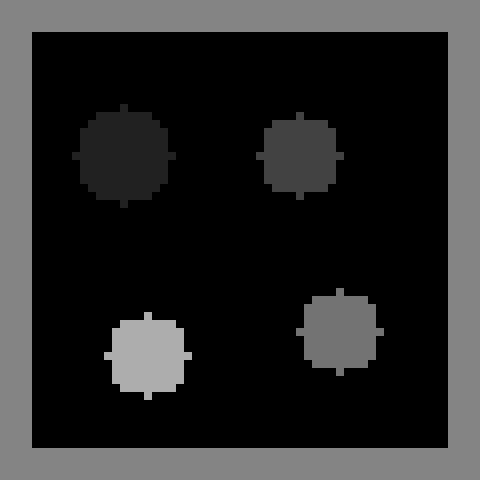Difference between revisions of "Element:SHLD"
m (Fixed spelling error on last edit) |
m (Enter a short summary [b]) |
||
| Line 47: | Line 47: | ||
[[File:Vyxyx.gif]] | [[File:Vyxyx.gif]] | ||
| + | |||
| + | Platinum does not require SPRK to grow SHLD. | ||
The higher pressure goes, the deeper layers of shield disappear. | The higher pressure goes, the deeper layers of shield disappear. | ||
Latest revision as of 23:24, 2 December 2023
| Properties | |
|---|---|
| Section | Solids |
| Spawn temperature | 22°C |
| Heat Conductivity | 0% |
| Relative weight | 100 |
| Gravity | 0 |
| Acid dissolve rate | 0.1% |
| Flammability | 0 |
| State | Solid |
| Misc properties | |
| Source code | |
Meant to be used as protection for circuits and often used in bunkers. SHLD does not conduct heat. ![]() or
or ![]() makes it grow, and it is destroyed by excessive pressure.
makes it grow, and it is destroyed by excessive pressure.
When SHLD is sparked, it will spread to all empty spaces surrounding that spark. It will also increase in level (SHLD->SHD2->SHD3->SHD4) All types except SHLD will fill surrounding empty spaces with the level below. For example, SHD3 will surround itself with SHD2.
How to use, with pictures
In order to use it, you only need to have a pixel of SHLD touching any kind of metal while sparked, and the shield will spread across the wire with the spark, growing more the longer the spark goes.
Platinum does not require SPRK to grow SHLD.
The higher pressure goes, the deeper layers of shield disappear.
SHLD disappears at 8 pressure, SHD2 at 16, SHD3 at 32, and SHD4 at 64 pressure. As long as there is at least one particle of any shield level left and it is being sparked, it will keep attempting to regrow.
Nuclear explosions will essentially destroy shield, but generally not all at once due to the way pressure works. You'll have to mess with it.
| Language: | [[::Element:SHLD|English]] |
|---|

